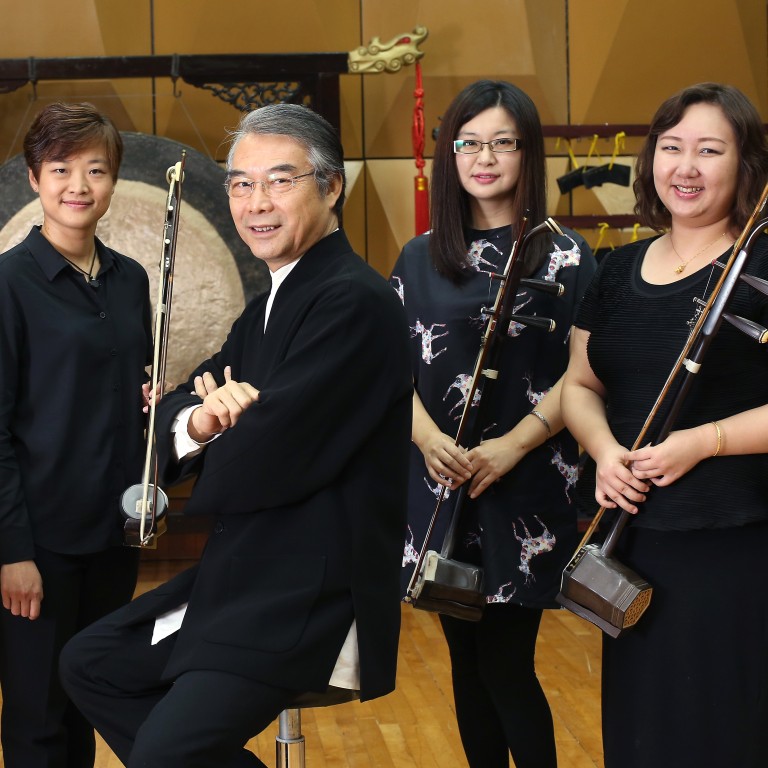
After a 13-year absence, new-look Hong Kong Chinese Orchestra promises a powerful and refined sound at Macau festival
Hong Kong Chinese Orchestra shines in Macau with eclectic programme
The Hong Kong Chinese Orchestra performs at a prestigious festival in Macau for the first time in 13 years on Tuesday with new instruments and a revised roster of players it hopes will improve the experience for concert-goers.
The 85-member outfit, which plays traditional Chinese instruments, will line up alongside renowned ensembles such as the Mahler Chamber Orchestra and the BBC Philharmonic at the 29th Macao International Music Festival.
“Our last time at the festival was shortly after we were corporatised in 2001 and we shared the stage with the Macao Chinese Orchestra,” said Yan Huichang, artistic director since 1997.
“This time we will perform there solely on our own a programme that showcases work by Hong Kong composers and those in our own repertory accumulated over the years.”
It will be the orchestra’s first out-of-town performance since a critically acclaimed tour to Finland and Estonia in August.
“Unlike the Scandinavian tour, which featured mostly modern works, we will offer a diverse programme to the Macau audience, including our own composer Chan Ming-chi’s orchestral work Jing-Qi-Shen and the rousing Yellow River Capriccio by mainland composer Cheng Dazhao, a piece that will involve audience participation, which is a great way to conclude the concert,” Yan said.
He said the Macau audience would get to hear the improved sound of the eco-huqin, a new version of the Chinese fiddle that uses bio-degradable membrane in place of traditional python skin. The orchestra has developed and performed it in more than 1,000 concerts since 2004.
Yan said it would enable the orchestra to deliver a “powerful and refined sound”.
It has also implemented a new “co-principal” system in the huqin string section in which leaders of its three string groups, gaohu, erhu, and zhonghu, will also act as deputy huqin chiefs.
“Though it will take years to perfect, we hope to get better flexibility and coherence of the entire string section,” the conductor said.
“Unlike the string sections in Western orchestras, these three positions and their leaders are interchangeable because of the nature of the huqin family, which is all based on erhu in the first place.”
Jiangsu-born Mao Qinghua, the new principal in zhonghu, or viola equivalent, for example, was an award-winning erhu player before joining the orchestra in 2008.
“My main duty is to lead my own zhonghu section, but when the need arises I will work in another section, and the same can be said of the other two co-principals,” Mao said.
Shanghai-born Zhou Yi, the new erhu principal and also a member since 2008, said the new arrangement “would require in-depth coordination among the string sections to better execute instructions from the conductor and the huqin principal”.
Wong Lok-ting, the new gaohu principal, is the first Hong Kong-born player to lead the string section since its founding in 1977.
“My new position comes with heavy responsibility with all the solo passages in orchestral and chamber concerts,” she said.
“But I hope my appointment will be a source of encouragement to young local musicians that we too can do it.”

